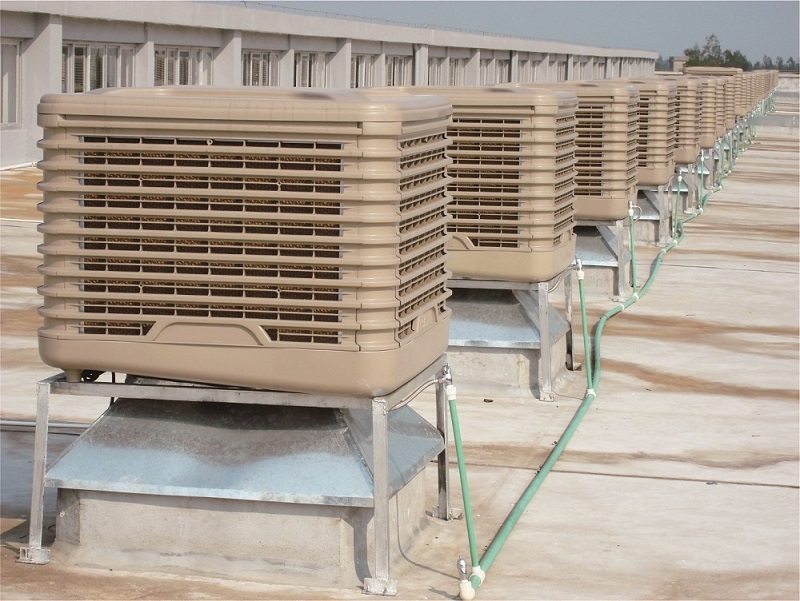Evaporative coolers have emerged as a highly efficient and cost-effective cooling solution for industrial facilities. These innovative cooling systems utilize natural evaporation to provide a comfortable environment while offering several advantages over traditional air conditioning units. This article will explore the benefits of evaporative coolers specifically designed for industrial facilities, highlighting their energy efficiency, cost savings, and improved air quality. Let’s look at some of the significant advantages of evaporative air coolers.
Energy Efficiency
Evaporative coolers stand out as energy-efficient alternatives to conventional air conditioners. By harnessing the power of water evaporation, these systems consume significantly less electricity compared to traditional cooling methods. Evaporative coolers use a fraction of the energy required by air conditioning units, making them an ideal choice for industrial facilities aiming to reduce their carbon footprint and operating costs. Evaporative cooling effectively cools incoming air without relying on energy-intensive refrigeration systems.
Cost Savings
Industrial facilities can significantly benefit from the cost savings provided by evaporative air coolers. Due to their lower energy consumption, these cooling systems can substantially reduce electricity bills. Moreover, evaporative coolers do not require the installation of complex ductwork, minimizing installation and maintenance costs. Their simple design and efficient operation contribute to long-term savings, making them an economically viable option for industrial facilities seeking sustainable cooling solutions.
Improved Air Quality
One of the critical advantages of evaporative air coolers is their improved air quality. Unlike traditional air conditioning units that recycle stale air, evaporative coolers constantly introduce fresh air into the facility. Evaporation filters out dust, allergens, and pollutants, resulting in cleaner and healthier indoor air. This is especially crucial for industrial settings, where airborne particles and contaminants can negatively impact the health and productivity of workers. Evaporative coolers help maintain optimal air quality by continuously circulating fresh air throughout the facility.
Enhanced Environmental Responsibility
Evaporative air coolers promote environmental responsibility by utilizing a natural cooling process and reducing energy consumption. Unlike refrigerant-based air conditioning systems that release harmful greenhouse gases, evaporative coolers are eco-friendly and have a minimal carbon footprint. Companies can demonstrate their commitment to sustainability and contribute to a greener future by choosing evaporative cooling for industrial facilities.
Versatile Applications
Evaporative air coolers are highly versatile and can be tailored to suit the specific needs of various industrial facilities. They serve warehouses, factories, data centers, manufacturing plants, and other large-scale settings. These coolers can efficiently cool large spaces while maintaining consistent temperature and humidity. Additionally, evaporative coolers can be integrated with existing ventilation systems, providing an added layer of cooling and air circulation.
Conclusion
Evaporative air coolers offer numerous advantages for industrial facilities, including energy efficiency, cost savings, improved air quality, and environmental responsibility. By harnessing the power of evaporation, these innovative cooling systems provide a comfortable and healthy environment while minimizing energy consumption. Industrial facilities that adopt evaporative air coolers can reduce operating costs and contribute to a sustainable future by choosing an environmentally friendly cooling solution. With their versatility and adaptability, evaporative coolers are ideal for industrial facilities seeking efficient and cost-effective cooling solutions.


